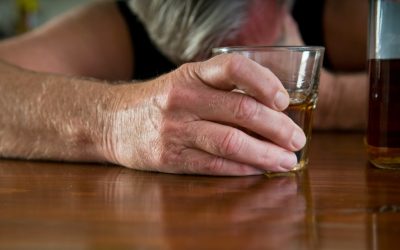Many things besides alcohol release dopamine in the brain, such as listening to a favorite song, getting a massage or exercising. In this guide, we’ll explain everything you need to know about using nutrition to your benefit as you heal from addiction. “Detoxification and Substance Abuse Treat[…]improvement protocol.” 2015.
- No matter what the substance or the person’s history of abusing it, the withdrawal phase is where most people fail when trying to fight addiction alone.
- The development of a nutritional plan for those in recovery involves planning out meals and determining an appropriate meal schedule that meshes with other activities in the treatment plan.
- Alcoholism is a disease that you can overcome with evidence-based treatment.
- B vitamins are involved in many processes that are essential to a successful recovery, and they’re often depleted in people who have been drinking heavily for a long time.
B vitamins such as thiamine (vitamin B1) and folate (vitamin B9) are critical for brain function and energy production, which can be negatively impacted by chronic alcohol consumption. Regular supplementation of these vitamins may assist in restoring cognitive function and general vitality. Vitamins are perfectly acceptable to help get your body back on track after giving up alcohol. You can opt for a multivitamin or seek out individual supplements that contain omega-3, magnesium, zinc, and vitamins A, B, C, D, and E. Try to use vitamins as a means to support a healthy diet, not to offset an unhealthy one. It’s also vital to consult your doctor first to make sure your vitamin regime is appropriate and safe for you.
Nutritional Side Effects of Unassisted Withdrawal
While cirrhosis scars from excessive drinking are irreversible, quitting alcohol and leading a healthier lifestyle can help your liver heal from alcohol-related liver disease. Lack of these nutrients can result in anemia, which makes the sufferer feel cold, lethargic and frequently dizzy. They may also experience frequent headaches and feel short of breath.
If a few more sugary snacks will prevent you from drinking, it can be okay to treat yourself a bit more than usual. A struggle with alcohol use impacts many aspects of a person’s life, including diet and nutrition. Drinking too much can lead to severe nutrient depletion, creating symptoms that can make alcohol detox and recovery more difficult and permanently affect your health. Eating a healthy diet and supplementing with vitamins as needed can help correct some of the damage from drinking.
Marijuana and Nutrition
Kyria crafts every meal from scratch, ensuring each bite is a gesture of support and nourishment. Her commitment extends to meeting the diverse nutrition needs of clients, even accommodating specific dietary restrictions. Beyond the plate, Kyria hosts engaging weekly groups focusing on nutrition education, food preparation, and cultivating healthy eating habits.

If you’ve ever found yourself licking the salt off your fingers after you finish a bag of potato chips, you know how satisfying salt can be. But food high in sodium can lead to a variety of health problems, including weight gain, high cholesterol, and blood pressure. And that’s not to mention their tendency to make us feel depressed or sluggish after eating them. Because withdrawal can already induce depressed and sluggish feelings, it’s best to eat healthier foods that leave us feeling energized and nourished.
Using Nutrition to Improve Neuroplasticity
Withdrawal symptoms from alcohol are different for everyone and can last anywhere from a few days to more than a week. During this period, when your body is adjusting and healing, it is important to have a healthy diet and nutrition to support you in your new alcohol-free lifestyle. By feeding our brains with the right foods, we can improve our neuroplasticity and enhance our cognitive abilities, mental health, and quality of life. A good diet can help promote improved energy and enhance the body’s ability to respond to physical stress during recovery. Your diet can also impact neurotransmitter levels and function and gut bacteria.

Once addiction has forced changes in the brain, however, it damages neuroplasticity and makes it much harder to adapt to sobriety. Additionally, the adaptations that the brain develops disrupt crucial neuropathways, decreasing neurotransmitters and their ability to move normally through the brain. Although staying hydrated in recovery is important, you should ask your doctor how much water is safe for you to drink.
Are there any specific meal plans recommended for recovering alcoholics?
Capsaicin is the component in the pepper that causes a burning sensation upon consumption. Capsaicin has also been shown to have pain-relieving and appetite-stimulating effects, both of which can be helpful in the early stages of withdrawal when many experience a lack of appetite. Drinking fluids rich in electrolytes, https://ecosoberhouse.com/ such as Gatorade, can replenish the body. When drinking water, it is important not to drink too much to avoid water intoxication. Water intoxication, a potentially fatal condition where the body holds more fluid than the kidneys can remove, occurs when the amount of salt and other electrolytes become too diluted.
- Heavily drinking increases calorie intake significantly, making you more likely to gain weight.
- In turn, these symptoms may cause an opioid user to not eat enough or absorb certain nutrients, or to suffer an imbalance of electrolytes such as sodium, potassium, and chloride.
- Water makes up around 60% of the body and plays vital roles in nearly every function.
- Giving clients the opportunity to practice good eating habits is essential, especially since food addiction can often replace drug addiction.
When you are recovering from alcohol, eating well is very important for many reasons. Good nutrition helps your body heal, fixing the harm that too much alcohol has done. Foods that are rich in nutrients help your mental health, easing feelings like sadness and worry that often come with recovery. alcohol recovery diet Eating a balanced diet helps keep your blood sugar steady, which gives you more energy and mood balance, which are important for facing the difficulties of recovery. A well-balanced diet is important to build up your vitamin and nutrient stores and keep you healthy during the recovery process.
Treating Co-Occurring Eating Disorders
Fruits and vegetables are important because they contain high amounts of fiber, as well as folate and Vitamin A, which are often deficient if you drink heavily. All of these symptoms can worsen if you are not getting enough water. Water is important for hydration, and you can easily lose too much water through vomiting and diarrhea. Talk to one of our Recovery Advocates about the right treatment path for you. Too little could eventually cause serious learning and memory problems, a condition called Wernicke-Korsakoff’s syndrome. Eat beans, peas, lentils, pork, brown rice, and fortified foods like breakfast cereal.
- Fruits and vegetables also contain many compounds that can aid in liver detoxification.
- As the condition worsens, appetite suppression increases and eating can become painful.
- Cayenne pepper is a natural spice found in a variety of cuisines.
- It eases inflammation and protects the thin layer that surrounds your brain cells, called the cell membrane.